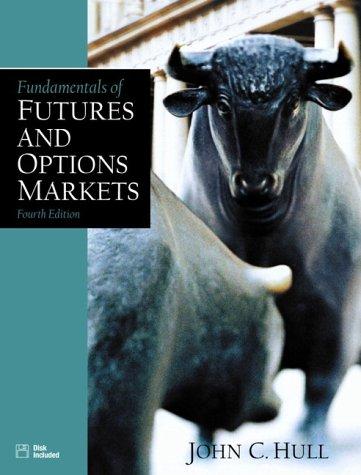Question
Arlene Elton has been investing in LKV Aeronautics common stock over the past six months. She bought 300 shares initially at $25 a share. A
Arlene Elton has been investing in LKV Aeronautics common stock over the past six months. She bought 300 shares initially at $25 a share. A month later, after a nice move by LKV, she bought another 300 shares at $35 a share. LKV then went into a tailspin over the next three months, and at the end Arlene considered selling all her shares at $15 a share. She's glad she didn't, though, because the stock rebounded in the last month and is currently selling at $30 a share. Arlene has saved some more money and is now thinking of buying 200 more shares. Before buying them, she has decided to talk to a friend, Mark Hatfield, who also invests in stocks. Mark uses dollar cost averaging. He thinks Arlene should also consider this technique. Indeed, he is convinced that dollar cost averaging almost guarantees successful investment results over time.
Questions
1. Assuming that Arlene goes ahead with her plan to buy 200 more shares of LKV, she will have invested $24,000 to buy 800 shares. Suppose that instead she had invested $4,000 each month over the six months and purchased shares at the following prices: $25, $35, $30, $20, $15, and $30. Set up a table that shows the number of shares pur-chased each month, the total value of her holdings, and her profit or loss after the pur-chase.
2. Compare Arlene's actual performance with the performance from dollar cost averaging. Calculate the average share cost each way, and use the values in your discussion.
Step by Step Solution
There are 3 Steps involved in it
Step: 1

Get Instant Access to Expert-Tailored Solutions
See step-by-step solutions with expert insights and AI powered tools for academic success
Step: 2

Step: 3

Ace Your Homework with AI
Get the answers you need in no time with our AI-driven, step-by-step assistance
Get Started


